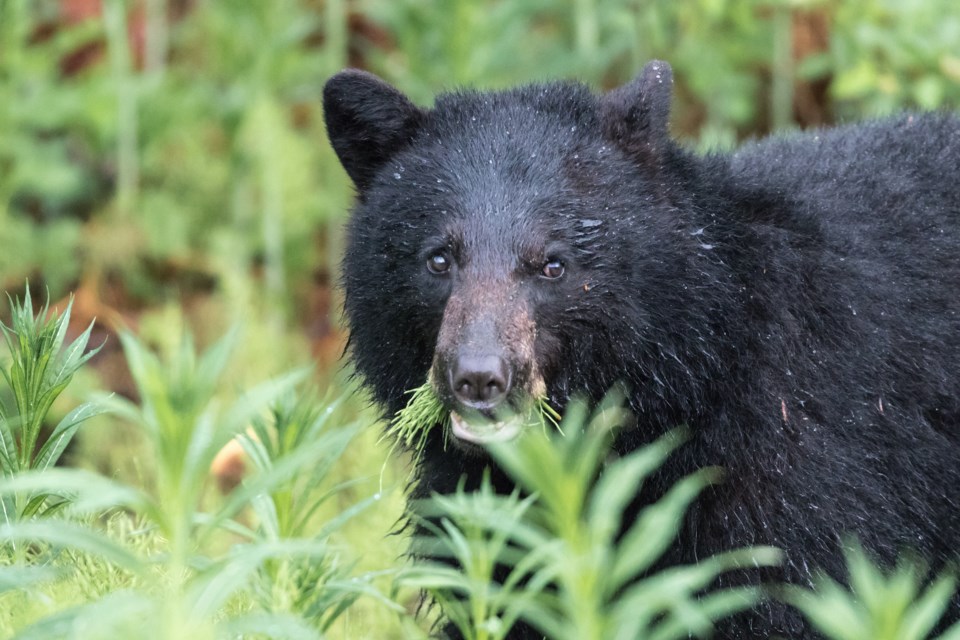A black bear was spotted in Deer Lake on May 1, ushering in bear season in Burnaby.
A photo posted to Reddit on the r/Vancouver subreddit showed the bear strolling down a path just in front of the lake.
This sighting comes just after Burnaby Mountain residents expressed concerns about wildlife being endangered by overly curious bystanders taking pictures of bears.
Vanessa Isnardy, program manager at WildSafeBC, said it's the season for black bear sightings.
Bears are emerging from their hibernation, in which they lose about 30% of their body weight. During their winter "denning," Isnardy said, bears don’t eat, drink or defecate.
They follow their noses into urban communities through highways and waterways.
“They're really good swimmers, for one thing, and so crossing the Fraser River is not a big deal to them,” Isnardy said, though she noted most bears are most likely coming from the North Shore. Bears will change their behaviours to avoid humans, and attempt crossing highways at night.
“You'll often see bears drawn into valley bottoms, where there's a lot of fresh new growth,” Isnardy said. “Unfortunately, we build our favourite places to live near prime bear habitat, you know, in your lush, green areas.”
With a very high population of black bears in B.C. (estimates range from 140,000 to 250,000), it’s still quite rare for humans to be injured or killed by our ursine neighbours.
Isnardy stressed that it’s important for people to not become complacent around black bears. Ensure that household garbage is stored inside or in bear-resistant containers. Bird feeders are hugely attractive to bears (one kilogram of bird seed has 8,000 calories – the perfect bear treat), so it’s recommended to take them down, or at least ensure seeds don’t collect on the ground below.
If you come across a bear, show a healthy respect: back away slowly. The bear is likely more interested in snacking on dandelions or clover than you.
If it approaches or becomes aggressive, stand your ground, tell the bear in a firm voice to move away. Don’t freeze and don’t run away – or turn your back.
In the backcountry, Isnardy says bear bells are unhelpful, but recommends bear spray for “when things go wrong,” though she said she wouldn’t recommend using it in an urban environment.
In the last five years, WildSafeBC says there have been over 86,000 black bear sightings reported to the conservation officer service in B.C.
The organization has released a free half-hour online course on recreating in bear country.
You can track reports of wildlife through the Wildlife Alert Reporting Program online.



